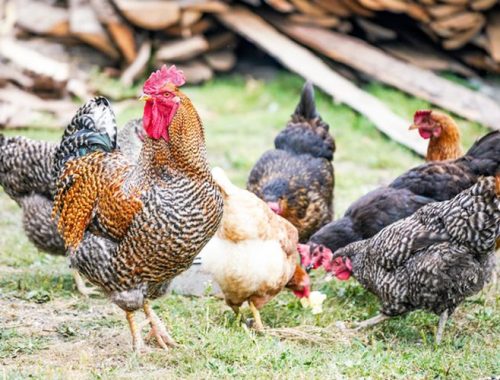Choosing the Right Location for Your Chicken Farm
Introduction
Are you thinking about starting your own chicken farm? Congratulations on taking this entrepreneurial leap! One of the key factors that will determine the success of your poultry venture is the location. Choosing the right location for your chicken farm is essential for the wellbeing of your feathered friends and the efficiency of your operation. In this article, we will explore the various factors you need to consider when deciding on the perfect spot for your chicken farm.
Factors to Consider for Your Chicken Farm Location
Climate and Weather Conditions
The climate and weather conditions in a particular location play a crucial role in the health and productivity of your chicken farm. Chickens are sensitive to extreme temperatures, so it’s important to choose a location with moderate, stable climates. Consider the average temperature, rainfall patterns, and seasonal variations in the area you are considering. Tropical climates can be challenging for chicken farming due to the high humidity and risk of diseases, so some caution is advised.
Proximity to Markets and Suppliers
Another vital factor to consider is the proximity of your chicken farm to markets and suppliers. You want to minimize transportation costs while ensuring easy access to both feed suppliers and potential buyers for your poultry products. Look for areas that have a strong demand for chicken products, such as urban centers or regions with a restaurant and hospitality industry.
Land Availability and Size
The availability of suitable land for your chicken farm is crucial. Ensure that the location you choose has enough space for the number of chickens you plan to raise. It’s recommended to have at least one square meter per bird to provide them with ample space to move around and exhibit natural behaviors. Additionally, consider future expansion plans if you intend to grow your operation.
Environmental Considerations
Sustainability is a growing concern across various industries, and chicken farming is no exception. When choosing a location, factor in environmental considerations such as water availability, waste management options, and the impact of your farm on the local ecosystem. Ensure your farm doesn’t harm the environment but rather contributes positively to its preservation.
Local Regulations and Permits
Before setting up your chicken farm, familiarize yourself with the local regulations and permits required for poultry farming. Different regions may have specific zoning regulations, waste management requirements, or restrictions on the number of chickens you can keep. Ensure you comply with all necessary permits and regulations to avoid legal troubles down the line.
Conclusion
Choosing the right location for your chicken farm is a decision that will have far-reaching consequences for your venture. Considering factors such as climate, proximity to markets and suppliers, land availability, environmental impact, and regulatory compliance is vital. Take your time to research different locations, visit potential sites, and consult with experts in the field. By investing effort into finding the perfect location, you are setting the stage for a thriving and successful chicken farming operation.
Frequently Asked Questions (FAQs)
- What type of climate is best for chicken farming?
-
Moderate climates with stable temperatures are ideal for chicken farming. Avoid extreme hot or cold regions.
-
How much space should I allocate per chicken on my farm?
-
It is recommended to provide at least one square meter per bird to ensure adequate space for movement and natural behaviors.
-
Should I prioritize proximity to markets or suppliers?
-
Ideally, a balance is necessary. Choose a location that is not too far from both markets and suppliers to minimize transportation costs.
-
How can I ensure my chicken farm is environmentally sustainable?
-
Consider factors like water availability, waste management options, and minimizing the impact on the local ecosystem. Implement sustainable practices where possible.
-
What permits or regulations do I need to comply with for chicken farming?
- Familiarize yourself with local regulations, zoning restrictions, waste management requirements, and any limitations on the number of chickens allowed per farm. Complying with all necessary permits is essential to avoid legal issues.
You May Also Like

Renting an Office in Malaysia: A Comprehensive Guide
June 8, 2023
PROJEK TERNAKAN AYAM KAMPUNG PKPS
October 4, 2021
